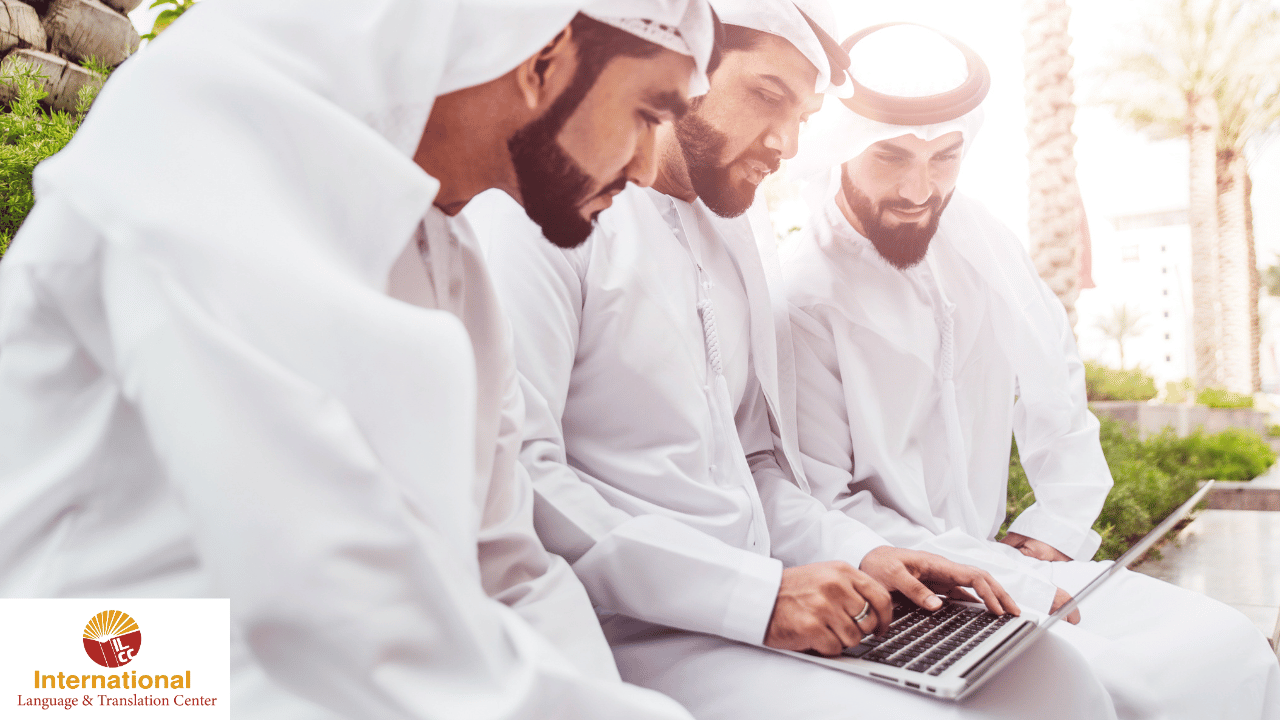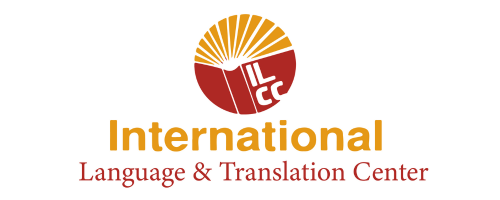Speak Arabic | Your Guide to Conversational Fluency
if you want to speak Arabic, So this article is for you. Unlocking the Beauty and Richness of Arabic Language: A Journey to Proficiency

In a world marked by globalization and interconnectedness, the ability to communicate effectively across cultures and languages has become increasingly valuable. Among the myriad of languages spoken worldwide, Arabic stands out as a linguistic gem, renowned for its historical significance, cultural richness, and lyrical beauty. Yet, for many non-native speakers, mastering Arabic remains a daunting challenge, fraught with complexities and unfamiliarities.
Definition of the Arabic language and its importance
The Arabic language, known as “اللغة العربية” (al-lugha al-‘Arabiyya) in Arabic, stands as one of the most ancient and influential languages in human history. Originating in the Arabian Peninsula, Arabic has evolved into a rich and diverse linguistic system, spoken by millions across the Middle East, North Africa, and beyond.
At its core, Arabic belongs to the Semitic language family, renowned for its complex grammar, intricate morphology, and exquisite calligraphy. The language is characterized by its unique script, flowing from right to left, which adds to its distinctiveness and allure.
Arabic holds immense importance on multiple fronts, spanning cultural, religious, historical, and practical dimensions. From being the language of the Quran, Islam’s holy book, to serving as a conduit for the transmission of scientific, philosophical, and literary knowledge during the Golden Age of Islam, Arabic has left an indelible mark on human civilization.
Furthermore, in contemporary times, Arabic retains its relevance as a global language of diplomacy, commerce, and cultural exchange. With the Arab world’s strategic significance in geopolitics and the global economy, proficiency in Arabic opens doors to countless opportunities for communication, cooperation, and collaboration.
Moreover, Arabic is a symbol of identity and heritage for millions of people worldwide. It serves as a vehicle for preserving and celebrating diverse cultures, traditions, and values across the Arab world and beyond.
In essence, the Arabic language embodies a rich tapestry of history, culture, and heritage, offering a gateway to understanding and engaging with the vibrant mosaic of the Arab world. Its importance transcends borders and boundaries, resonating with learners, scholars, and enthusiasts alike as they embark on a journey to unravel its mysteries and embrace its beauty.
Challenges that learners face when speaking Arabic

Mastering the Arabic language presents learners with several challenges, stemming from its unique linguistic features and cultural nuances. Some of these challenges include:
Complex Grammar: Arabic grammar is renowned for its complexity, with intricate rules governing verb conjugation, noun declension, and sentence structure. Learners often find it challenging to grasp the subtleties of grammatical patterns and apply them accurately in speech.
Arabic Script: The Arabic script, with its cursive writing style and right-to-left orientation, can be daunting for learners accustomed to left-to-right scripts. Mastering the Arabic alphabet and handwriting poses a significant initial hurdle for many learners.
Pronunciation and Phonetics:
Arabic phonetics include sounds that are not present in many other languages, such as the guttural sounds of “ع” (‘ayn) and “ح” (ḥa). Achieving correct pronunciation of these sounds can be challenging for non-native speakers and may require focused practice.
Vocabulary Acquisition: Arabic vocabulary can be vast and varied, with multiple words and expressions conveying subtle shades of meaning. Learners may struggle with memorizing vocabulary and understanding the contextual nuances of different words.
Dialectal Variation: Arabic is spoken in numerous dialects across the Arab world, each with its own vocabulary, pronunciation, and grammar. Learners may find it challenging to navigate these dialectal differences, particularly when transitioning between formal Standard Arabic (الفصحى) and colloquial dialects.
Cultural Context: Arabic language and culture are deeply intertwined, with linguistic expressions often reflecting cultural values, customs, and traditions. Learners may encounter difficulties in understanding and appropriately using language in various cultural contexts.
Limited Exposure and Practice: For learners outside the Arab world, opportunities for immersive language exposure and practice may be limited. Lack of access to native speakers and authentic language materials can hinder progress in language acquisition.
Motivation and Persistence: Learning Arabic requires dedication, perseverance, and sustained effort over time. Learners may face challenges in maintaining motivation and overcoming setbacks along the learning journey.
Despite these challenges, with dedication, patience, and effective learning strategies, learners can overcome obstacles and achieve proficiency in speaking Arabic. Immersion experiences, regular practice, and cultural engagement can greatly enhance language acquisition and fluency.
The importance of mastering the Arabic language in our daily lives
Mastering the Arabic language holds significant importance in various aspects of our daily lives, offering numerous benefits and opportunities. Arabic serves as a primary means of communication for millions of people worldwide. Mastering Arabic facilitates effective communication with native Arabic speakers in both personal and professional contexts, fostering deeper connections and understanding.
Arabic language is intricately intertwined with rich cultural heritage and traditions. Mastering Arabic enables individuals to delve into the depths of Arab culture, literature, art, and history, fostering a greater appreciation and understanding of diverse cultural perspectives.
Proficiency in Arabic opens up a wide array of career opportunities in various fields such as diplomacy, international relations, journalism, business, and academia. In today’s globalized world, employers value individuals who possess language skills, especially in languages like Arabic, which are in high demand.
Arabic is the fifth most spoken language globally and is the language of millions of publications, media outlets, and online resources. Mastering Arabic grants individuals access to a vast repository of information, ranging from scholarly articles and literature to news reports and social media content.
Arabic is spoken in numerous countries across the Middle East and North Africa, making it invaluable for travelers and tourists exploring these regions. Mastering Arabic enhances travel experiences, enabling individuals to navigate local environments, interact with locals, and immerse themselves in authentic cultural experiences.
Arabic holds immense religious significance as the language of the Quran, Islam’s holy book. Mastery of Arabic facilitates meaningful engagement in interfaith dialogue, promoting mutual understanding and respect among individuals from different religious backgrounds.
Learning Arabic is a deeply rewarding and intellectually stimulating endeavor. Mastering Arabic broadens one’s horizons, enhances cognitive abilities, and fosters personal growth and development.
Benefits of mastering the Arabic language
Mastering the Arabic language offers a multitude of benefits that positively impact various aspects of life. Proficiency in Arabic enhances communication skills, enabling individuals to interact effectively with millions of Arabic speakers worldwide. Whether engaging in personal relationships, conducting business transactions, or participating in cultural exchanges, mastering Arabic facilitates clear and meaningful communication, fostering deeper connections and understanding.
Furthermore, Arabic is deeply intertwined with rich cultural traditions and heritage across the Middle East and North Africa. By mastering the language, individuals gain access to a wealth of literature, art, music, and cuisine, allowing them to immerse themselves in diverse cultural experiences and gain a deeper understanding of Arab societies. This exposure to different cultures broadens perspectives, promotes empathy, and enhances cross-cultural communication and cooperation.
In addition to cultural enrichment, proficiency in Arabic opens up a wide range of career opportunities in various industries. Arabic language skills are highly valued in fields such as diplomacy, international relations, journalism, business, and education. Mastery of Arabic can lead to new career prospects, enhance professional development, and increase marketability, especially in roles that require engagement with Arab countries or communities.
Moreover, mastering Arabic fosters a sense of global citizenship and cultural awareness in an increasingly interconnected world. By understanding and appreciating Arabic culture and perspectives, individuals can contribute to cross-cultural understanding and promote tolerance and cooperation on a global scale. This cultural competency is essential for building bridges between people from different backgrounds and promoting peace and harmony in diverse societies.
Furthermore, learning Arabic is a challenging and intellectually rewarding endeavor. Proficiency in Arabic requires critical thinking, problem-solving, and linguistic creativity, which can stimulate cognitive function and enhance overall mental acuity. The process of mastering Arabic opens up new avenues for personal growth, self-expression, and self-discovery, enriching individuals’ lives in profound and meaningful ways.
Additionally, knowledge of Arabic can facilitate access to educational opportunities, such as scholarships, exchange programs, and academic research in Arab countries. Proficiency in Arabic also enables students to explore specialized fields of study, such as Islamic studies, Middle Eastern history, or Arabic linguistics, further expanding their knowledge and expertise.
Finally, proficiency in Arabic can facilitate meaningful engagement in interfaith dialogue, as Arabic is the language of the Quran, the holy book of Islam. By understanding and respecting the significance of Arabic in Islamic religious practice and scholarship, individuals can participate in constructive dialogue and promote mutual understanding and respect among people of different religious backgrounds.
Tips for speaking Arabic fluently

Achieving fluency in Arabic demands consistent practice, dedication, and a strategic approach. Immersing yourself in the language is crucial. Surround yourself with Arabic in various forms: listen to Arabic music, watch Arabic movies and TV shows, and engage in conversations with native speakers. Immersion exposes you to the rhythm, intonation, and vocabulary of the language, helping you become more familiar and comfortable with it.
Regular practice is essential for improvement. Make an effort to speak Arabic every day, even if it’s just for a few minutes. Seek out language exchange partners or join language learning communities where you can practice speaking with native speakers or fellow learners. Consistent practice helps reinforce what you’ve learned and builds confidence in speaking.
Paying attention to Arabic pronunciation is vital. Try to mimic native speakers as closely as possible and focus on mastering the unique sounds of Arabic, such as the guttural sounds like “ع” and “ح.” Recording yourself speaking and comparing your pronunciation to that of native speakers can help you identify areas for improvement and refine your pronunciation skills.
Expanding your vocabulary is key to fluency. Learn new words and phrases regularly and incorporate them into your conversations. Use flashcards, language learning apps, or vocabulary lists to memorize new words and review them regularly. The more words you know, the more confidently you can express yourself in Arabic.
Familiarize yourself with common Arabic phrases and expressions used in everyday conversation. Knowing these phrases will help you communicate more naturally and fluently in various situations. Practice speaking Arabic in different contexts and situations, such as ordering food at a restaurant, asking for directions, or making small talk with friends. Diverse speaking practice prepares you to handle real-life conversations more effectively.
Listening to Arabic audio recordings or podcasts and repeating after the speakers can improve your pronunciation, intonation, and rhythm. Focus on imitating the natural flow of the language and pay attention to stress patterns and word emphasis. Seeking feedback from native speakers or language teachers is invaluable. They can provide insights and corrections to help you improve your pronunciation, grammar, and overall fluency.
Patience and persistence are essential. Learning a language takes time and effort, so be patient with yourself and stay committed to your goals. Celebrate your progress along the way and don’t be discouraged by setbacks. With consistent practice and perseverance, you’ll continue to improve and eventually achieve fluency in Arabic.
Utilize language learning resources such as textbooks, online courses, language exchange websites, and tutoring services to supplement your learning. These resources offer structured guidance and additional practice opportunities to support your language learning journey. By incorporating these strategies into your language learning routine and staying dedicated to your goals, you’ll steadily progress towards fluency in Arabic.
ILCC

Discover the world of languages and translation with us!
Join us and explore the world of languages and translation with the highest quality and professionalism! On our website, we offer you a unique and distinctive learning experience that allows you to acquire new language skills with ease and enjoyment.
Our center is distinguished by a team of qualified and specialized language teachers who ensure that they provide personal and effective lessons that perfectly meet your needs. Whether you want to learn a new language or improve your current level, we are here to help you achieve your goals smoothly and effectively.
In addition, our website provides accurate and professional translation services, where our team works to provide high-quality and reliable translations in various fields. Whether you need to translate official documents, marketing content, or scientific articles, you can rely on us to provide translation services with the highest standards of quality and accuracy.
On our website, we combine comprehensive language education and distinguished translation services to provide you with a unique and distinctive learning experience. Join us now and start your journey in the world of languages and translation with confidence and determination.
You can contact us on WhatsApp from here → ILCC.
conclusion
In conclusion, mastering the Arabic language holds immense value and significance for non-native speakers. Through this linguistic journey, individuals not only gain the ability to communicate effectively with millions of Arabic speakers worldwide but also open doors to rich cultural experiences, career opportunities, and personal growth.
Speaking Arabic is more than just acquiring a new skill; it is a gateway to understanding and appreciating the diverse tapestry of Arab culture, history, and heritage. It fosters connections, builds bridges, and promotes mutual understanding among people from different backgrounds and walks of life.
As non-native speakers embark on their journey to master Arabic, they embark on a path of exploration, discovery, and enrichment. With dedication, persistence, and a passion for learning, they can overcome challenges, break down barriers, and ultimately achieve fluency in this beautiful and vibrant language.
In a world where communication and understanding are more important than ever, speaking Arabic empowers individuals to connect with others, bridge cultural divides, and embrace the richness of our global community. So, let us continue to embrace the journey of speaking Arabic, for in doing so, we not only enrich our own lives but also contribute to a more connected and harmonious world.

